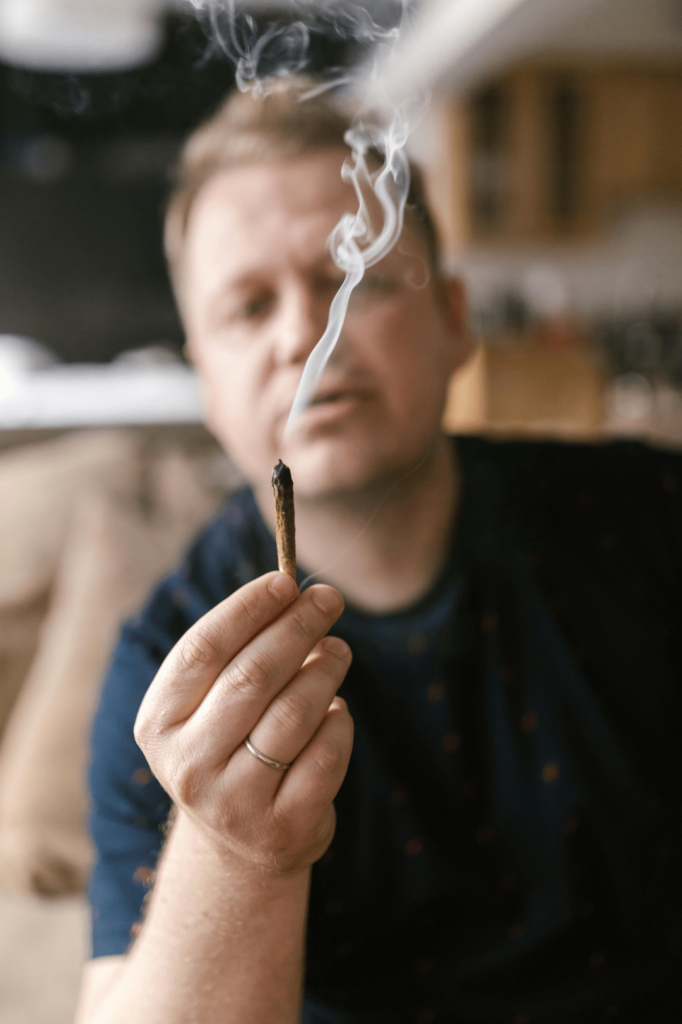Last updated on December 18th, 2024 at 03:28 am
- 1. Understanding Behavioral Addictions
- 1.1 Key Characteristics of Behavioral Addictions
- 2. Common Types of Behavioral Addictions
- 2.1 Gambling Addiction
- 2.2 Internet Addiction
- 2.3 Shopping Addiction
- 2.4 Sex and Pornography Addiction
- 2.5 Exercise Addiction
- 3. Neurobiology of Behavioral Addictions
- 3.1 The Role of Dopamine
- 3.2 Neuroplasticity and Addiction
- 4. Risk Factors for Behavioral Addictions
- 4.1 Genetic Predisposition
- 4.2 Environmental Factors
- 4.3 Co-occurring Mental Health Disorders
- 5. Diagnosis and Assessment
- 5.1 Diagnostic Criteria
- 5.2 Screening Tools
- 6. Treatment Approaches for Behavioral Addictions
- 6.1 Cognitive-Behavioral Therapy (CBT)
- 6.2 Motivational Interviewing
- 6.3 Group Therapy and Support Groups
- 6.4 Mindfulness-Based Approaches
- 6.5 Pharmacological Interventions
- 7. Prevention and Early Intervention
- 7.1 Education and Awareness
- 7.2 Developing Healthy Habits
- 7.3 Early Identification and Intervention
- 8. The Future of Behavioral Addiction Research and Treatment
- 8.1 Neuroimaging Studies
- 8.2 Digital Therapeutics
- 8.3 Personalized Treatment Approaches
- Types of Process Addictions
- Food Addiction
- Smartphone Addiction
- Hypersexual Disorder
- Video Game Addiction
- Exercise Addiction
- Shopping Addiction
- Binge-Watching Disorder
- The Role of Personality Traits and Risk Factors in Addictions
- Behavioral Health Conditions and Co-Occurring Disorders
- Physical Health and Addiction
- Therapeutic Modalities and Treatment Approaches
- Digital Therapeutics and Counseling
- CACREP-Accredited Programs for Addiction Counselors
- Preventative Measures and Early Intervention
- Early Warning Signs of Addiction
- Behavioral Intervention and Family Support
- Long-term Recovery and Community Support
- Understanding Additional Types of Process Addictions
- Compulsive Working Habits
- Compulsive Skin Picking Disorder
- Hair-Pulling Disorder
- Compulsive Lying Disorder
- Plastic Surgery Addiction
- Compulsive Spending Habits
- Tanning Addiction Risks
- Compulsive Risk-Taking Behavior
- Impact on Personal and Social Relationships
- Strained Relationships Due to Addictive Behaviors
- Co-Dependency Issues in Addiction
- Brain Chemistry and Process Addictions
- Reward Center and Release of Dopamine
- Changes in Brain Function Due to Addiction
- Specific Behavioral Addictions and Their Symptoms
- Compulsive Eating Disorder
- Compulsive Gambling Treatment
- Technology and Screen Addiction
- Video Gaming and Escapism Behaviors
- Addressing Psychological Dependencies and Emotional Compulsions
- Emotional Addiction and Self-Medicating Behaviors
- Self-Soothing Behaviors and Coping Mechanisms
- Medical and Professional Support for Process Addictions
- Involvement of Medical Professionals
- Role of Process Addiction Treatment Centers
- Maladaptive Traits and Emotional Challenges in Addictions
- Maladaptive Traits Linked to Addictive Tendencies
- Emotional Regulation and Sensory Addiction
- Treatment for Process Addictions: Specialized Approaches
- Adventure Therapy as a Recovery Tool
- Teen Process Addiction Treatment Programs
- Use of Digital Tools for Relapse Prevention
- Family Dynamics in Addiction and Recovery
- Family Therapy and Its Impact on Recovery
- Role of Family in Addressing Addictive Disorders
- Behavioral Scientists’ Perspectives on Addictive Cycles
- Role of Behavioral Scientists in Understanding Process Addiction
- Psychological Reward and the Cycle of Addiction
- Coping Strategies for Process Addictions
- Adaptive Coping Mechanisms for Self-Control Difficulties
- Addressing Compensatory Behaviors in Process Addictions
- Compulsive Rituals and the Need for Behavioral Modification
- Habitual Actions and Behavioral Responses
- Behavioral Modification for Habitual Behaviors
- Addressing Problematic Coping and Self-Control Issues
- Impulse Management in Process Addictions
- Self-Control Difficulties and Behavioral Dependencies
- Specialized Interventions for Process Addictions
- Addiction Experts and Personalized Treatment
- Behavioral Addiction Examples and Specialized Care
- Conclusion
- Frequently Asked Questions
- What Are the Types of Process Addictions?
- How Are Process Addictions and Substance Abuse Disorders Different?
- What Are Common Symptoms of Process Addiction?
- Can Process Addiction Co-Occur with Substance Abuse?
- What Are the Risk Factors for Process Addiction?
- How Does Process Addiction Affect Brain Chemistry?
- What Are the Symptoms of Withdrawal in Process Addictions?
- How Is Video Game Addiction Identified and Treated?
- How Do Process Addictions Impact Physical Health?
- Can Process Addictions Lead to Financial Issues?
- How Can Family Therapy Help in Treating Process Addictions?
- Are There Specific Treatment Programs for Process Addiction?
- What Is the Role of Cognitive Behavioral Therapy in Process Addiction Treatment?
- How Does Process Addiction Affect Social Relationships?
- What Is the Connection Between Process Addictions and Mental Health Issues?
- Can Process Addictions Lead to Physical Withdrawal Symptoms?
- How Do Risky Behaviors Relate to Process Addiction?
- How Is Smartphone Addiction Classified as a Process Addiction?
- What Are the Physical Signs of Process Addiction?
- Can Process Addiction Be Treated with Medication?
Behavioral addictions, also known as process addictions, have gained increasing recognition in recent years as serious mental health concerns. Unlike substance addictions, these disorders involve compulsive engagement in rewarding non-drug behaviors, despite significant negative consequences.
While not officially recognized in diagnostic manuals until recently, behavioral addictions share many similarities with substance use disorders in terms of their development, underlying neurological processes, and impact on individuals’ lives.
1. Understanding Behavioral Addictions
Behavioral addictions are characterized by an individual’s inability to control their engagement in a particular behavior, even when it leads to harmful outcomes. These addictions often provide a temporary sense of pleasure or relief, followed by guilt, shame, or distress. Over time, individuals may develop tolerance, requiring increased engagement to achieve the same psychological effects.
1.1 Key Characteristics of Behavioral Addictions
- Loss of control: Inability to moderate or stop the behavior
- Compulsive engagement: Feeling driven to perform the behavior repeatedly
- Continued behavior despite consequences: Persisting despite negative impacts on relationships, work, or health
- Cravings and urges: Experiencing strong desires to engage in the behavior
- Mood modification: Using the behavior to alter emotional states
- Withdrawal symptoms: Experiencing discomfort when unable to engage in the behavior
2. Common Types of Behavioral Addictions
While the field of behavioral addictions continues to evolve, several types have been identified and studied extensively:
2.1 Gambling Addiction
Gambling addiction, officially recognized as a disorder in the DSM-5, involves persistent and recurrent problematic gambling behavior. Individuals with this addiction may chase losses, lie about gambling activities, and experience financial ruin. The rise of online gambling platforms has made this addiction increasingly prevalent and accessible.
2.2 Internet Addiction
Internet addiction encompasses a range of online activities, including social media use, online gaming, and excessive web browsing. This addiction can lead to social isolation, sleep disturbances, and neglect of real-life responsibilities. With the ubiquity of smartphones and constant connectivity, internet addiction has become a growing concern worldwide.
2.3 Shopping Addiction
Also known as compulsive buying disorder, shopping addiction involves excessive purchasing behavior that goes beyond normal consumerism. Individuals may experience a rush when buying items, followed by guilt or shame. This addiction can lead to severe financial problems and hoarding behaviors.
2.4 Sex and Pornography Addiction
While controversial in its classification, sex addiction involves compulsive sexual thoughts and behaviors that interfere with daily life. Pornography addiction, often intertwined with sex addiction, has become increasingly prevalent with the accessibility of online adult content. These addictions can severely impact relationships and personal well-being.
2.5 Exercise Addiction
Exercise addiction occurs when individuals become obsessed with physical fitness to the point of harming their health. This can involve overtraining, exercising despite injuries, and prioritizing workouts over other important life activities. While regular exercise is beneficial, addiction can lead to physical injuries, social isolation, and disordered eating patterns.


3. Neurobiology of Behavioral Addictions
Research has shown that behavioral addictions involve similar neurological pathways as substance addictions, particularly in the brain’s reward system. The release of neurotransmitters like dopamine plays a crucial role in reinforcing addictive behaviors.
3.1 The Role of Dopamine
Dopamine, often called the “feel-good” neurotransmitter, is released during pleasurable activities. In behavioral addictions, the brain’s reward system becomes dysregulated, leading to heightened dopamine release during addictive behaviors and decreased sensitivity to natural rewards.
3.2 Neuroplasticity and Addiction
Repeated engagement in addictive behaviors can lead to neuroplastic changes in the brain, reinforcing the addiction and making it more difficult to break the cycle. These changes can affect decision-making, impulse control, and emotional regulation.
4. Risk Factors for Behavioral Addictions
Several factors contribute to the development of behavioral addictions:
4.1 Genetic Predisposition
Research suggests that genetic factors play a role in susceptibility to addiction. Individuals with a family history of addiction may be at higher risk for developing behavioral addictions.
4.2 Environmental Factors
Stress, trauma, and early exposure to addictive behaviors can increase the likelihood of developing an addiction. Social and cultural norms also play a role in shaping addictive behaviors.
4.3 Co-occurring Mental Health Disorders
Behavioral addictions often co-occur with other mental health conditions such as depression, anxiety, and attention-deficit/hyperactivity disorder (ADHD). These conditions may increase vulnerability to addictive behaviors as a form of self-medication.
5. Diagnosis and Assessment
Diagnosing behavioral addictions can be challenging due to the lack of standardized criteria for many types. However, mental health professionals use various assessment tools and clinical interviews to evaluate addictive behaviors.
5.1 Diagnostic Criteria
While not all behavioral addictions are officially recognized in diagnostic manuals, clinicians often look for patterns of behavior that mirror substance use disorders, including:
- Preoccupation with the behavior
- Loss of control
- Tolerance
- Withdrawal symptoms
- Negative consequences in various life domains
5.2 Screening Tools
Various screening tools and questionnaires have been developed to assess specific behavioral addictions. These tools help clinicians identify problematic patterns and severity of addictive behaviors.


6. Treatment Approaches for Behavioral Addictions
Treatment for behavioral addictions often involves a combination of therapeutic approaches, similar to those used for substance use disorders.
6.1 Cognitive-Behavioral Therapy (CBT)
CBT is a widely used approach that helps individuals identify and change thoughts and behaviors associated with their addiction. It focuses on developing coping skills, managing triggers, and preventing relapse.
6.2 Motivational Interviewing
This therapeutic technique helps individuals explore and resolve ambivalence about changing their behavior. It aims to enhance motivation and commitment to recovery.
6.3 Group Therapy and Support Groups
Peer support can be crucial in recovery from behavioral addictions. Support groups modeled after 12-step programs provide a sense of community and shared experience.
6.4 Mindfulness-Based Approaches
Mindfulness techniques can help individuals become more aware of their thoughts and urges, allowing for better self-regulation and impulse control.
6.5 Pharmacological Interventions
While medications are not the primary treatment for behavioral addictions, some may be used to address co-occurring mental health conditions or specific symptoms.
7. Prevention and Early Intervention
Preventing behavioral addictions involves a multi-faceted approach targeting individuals, families, and communities.
7.1 Education and Awareness
Increasing public awareness about the risks of behavioral addictions and promoting healthy coping mechanisms can help prevent their development.
7.2 Developing Healthy Habits
Encouraging balanced lifestyles, stress management techniques, and positive social connections can reduce the risk of developing addictive behaviors.
7.3 Early Identification and Intervention
Recognizing early signs of problematic behaviors and seeking professional help can prevent the progression to full-blown addiction.


8. The Future of Behavioral Addiction Research and Treatment
As our understanding of behavioral addictions grows, several areas of research and development show promise:
8.1 Neuroimaging Studies
Advanced brain imaging techniques are providing new insights into the neural mechanisms underlying behavioral addictions, potentially leading to more targeted treatments.
8.2 Digital Therapeutics
Mobile apps and online platforms are being developed to provide support and interventions for individuals struggling with behavioral addictions.
8.3 Personalized Treatment Approaches
As we learn more about individual differences in addiction vulnerability and recovery, treatments may become more tailored to specific needs and characteristics.
Types of Process Addictions
Process addictions, also known as behavior-based addictions, involve compulsive engagement in non-substance activities. These types of addictions can significantly interfere with an individual’s real life, often leading to harmful consequences such as strained relationships and financial issues.
Food Addiction
Food addiction is a form of addiction characterized by compulsive overeating and an inability to control eating habits, particularly regarding highly palatable foods like those high in sugar or fat. This type of addiction often leads to physical health issues, including obesity and diabetes, and emotional distress.
Smartphone Addiction
Smartphone addiction is becoming increasingly common, as individuals struggle with compulsive internet use and dopamine via likes on social media platforms. This form of addiction can cause physical symptoms such as eye strain and sleep disturbances, and psychological dependency can interfere with everyday life and real-world relationships.
Hypersexual Disorder
Hypersexual disorder, also referred to as compulsive sexual behavior, involves a preoccupation with sexual activity to the point that it disrupts daily functioning. This form of addiction often leads to negative emotions such as guilt and shame. Treatment can include both sex addiction treatment and supportive psychotherapy.


Video Game Addiction
Video game addiction, also known as gaming addiction, includes a continual preoccupation with gaming, leading to a neglect of personal and social responsibilities. SYMPTOMS OF PROCESS ADDICTION in gaming may include a loss of interest in other activities and physical withdrawal symptoms when unable to game. Compulsive video gaming impacts individuals’ social relationships and often results in addictive activities becoming a substitute for real-life experiences.
Exercise Addiction
Exercise addiction involves an obsession with physical activity, which may lead to compulsive exercising dangers such as overtraining, ignoring injuries, and prioritizing workouts over crucial activities. This type of behavior addiction can result in physical and mental health challenges if not managed properly. Exercise addiction recovery often requires a structured approach to restore balance.
Shopping Addiction
Shopping addiction, also referred to as compulsive purchasing, is characterized by an irresistible urge to buy items, leading to significant financial issues and sometimes compulsive hoarding disorder. This behavioral addiction negatively impacts personal and financial well-being, and addressing it often requires intervention, such as compulsive spending solutions or therapy to address the underlying emotional addiction.
Binge-Watching Disorder
Binge-watching addiction is an emerging form of process dependency that can lead to negative emotions when viewing is interrupted or constrained. It involves watching multiple episodes of a series without breaks, which can interfere with sleep, physical health, and other daily activities. Coping mechanisms such as setting viewing limits are often recommended.
The Role of Personality Traits and Risk Factors in Addictions
Personality traits such as impulsivity and a predisposition for risk-taking behavior play a crucial role in the development of behavioral addictions. These traits can contribute to compulsive behavior disorders that manifest as compulsive shopping disorder, compulsive internet addiction, and more. Risk factors like stress and childhood trauma are also significant, often serving as catalysts for addictive behaviors.
Behavioral Health Conditions and Co-Occurring Disorders
Behavioral health conditions such as co-occurring disorders can increase the vulnerability to process addictions. Common co-occurring conditions include mental disorders like depression or anxiety, which may drive individuals to engage in addictive behaviors as coping strategies. This pattern of using addictive activities to manage difficult emotions is a key aspect of the addiction process.
Physical Health and Addiction
Engaging in process addictions can lead to a wide range of physical health complications. Excessive habits such as compulsive eating disorder or work addiction can cause physical signs such as chronic fatigue, digestive problems, and physical withdrawal symptoms. Behavioral scientists emphasize the importance of balancing physical activities to mitigate physical health issues that result from addictive behavior.


Therapeutic Modalities and Treatment Approaches
Process addiction treatment often involves a multidisciplinary approach to address the addiction potential and help individuals regain control over their lives. Methods such as Adventure Therapy, family therapy, and treatment programs specifically tailored to each type of addiction have been shown to support recovery effectively. Family support, such as a family therapy session, can also significantly impact a person’s recovery journey.
Digital Therapeutics and Counseling
Digital therapeutics, such as mobile apps, are also increasingly used to aid individuals during their recovery process. Platforms like those offered by SunCloud Health and J. Flowers Health Institute are leveraging online resources to provide consistent support to people with process addictions. These interventions include behavior modification techniques to replace unhealthy obsessions with healthier choices.
CACREP-Accredited Programs for Addiction Counselors
Professional support from counselor education programs, specifically CACREP-accredited programs, helps ensure that addiction specialists are well-prepared to support individuals during their recovery journey. Education in this area focuses on understanding the complexities of addiction disorders, such as substance abuse and non-substance-related addictions, and providing evidence-based support.
Preventative Measures and Early Intervention
Early Warning Signs of Addiction
Recognizing the signs of addiction early is critical for effective intervention. Common warning signs may include social withdrawal, increased engagement in the activity of choice, and psychological dependency on that behavior for emotional regulation. Spotting these signs allows for the opportunity to intervene before an addiction cycle takes hold.
Behavioral Intervention and Family Support
Preventative measures, such as family therapy and education on maladaptive coping mechanisms, can mitigate the risks associated with process addictions. The role of family and community support in prevention cannot be underestimated, as they provide emotional backing and identify potential relapse triggers.
Long-term Recovery and Community Support
Long-term recovery from process addictions requires ongoing support and structured care after discharge from a treatment program. Support groups and peer engagement are integral parts of maintaining sobriety and sustaining the healthy behavior needed to cope with life’s challenges. The recovery process is unique to each individual, but having a solid care team and support network plays a vital role in ensuring sustained recovery.


Understanding Additional Types of Process Addictions
Compulsive Working Habits
Compulsive working habits, commonly referred to as work addiction, involve an uncontrollable drive to work excessively. This type of addiction can lead to severe physical health issues like chronic fatigue and stress, as well as the neglect of social relationships. Balancing work and personal life is crucial for avoiding such behavioral addictions.
Compulsive Skin Picking Disorder
Compulsive skin picking, also known as dermatillomania, is a form of addiction that involves repeatedly picking at one’s skin, often resulting in physical damage. Individuals may engage in this behavior to cope with difficult emotions or stress. Compulsive skin picking disorder requires behavioral interventions to manage these compulsive habits.
Hair-Pulling Disorder
Hair-pulling disorder, or trichotillomania, is characterized by the repeated urge to pull out hair from the scalp, eyebrows, or other areas. This behavior often arises from stress or anxiety and can cause noticeable hair loss and emotional distress. Hair-pulling treatment typically involves cognitive-behavioral approaches to address these compulsive behaviors.
Compulsive Lying Disorder
Compulsive lying disorder involves a chronic tendency to lie, often without a clear motive. This compulsive behavior can severely impact trust in personal relationships and create long-term social and psychological consequences. Compulsive lying treatment may include therapy to understand the underlying causes and improve impulse control.
Plastic Surgery Addiction
Plastic surgery addiction involves an obsession with undergoing cosmetic procedures to improve one’s appearance, often driven by negative body image or narcissistic behaviors. This type of behavioral addiction can lead to numerous physical health issues and financial strain. Plastic surgery addiction help includes therapy focused on body image and self-esteem.
Compulsive Spending Habits
Compulsive spending habits involve an uncontrollable urge to buy items, even when it results in financial issues. This type of behavior addiction often serves as a coping mechanism for dealing with stress or negative emotions. Addressing compulsive spending solutions can help individuals regain control over their finances and improve overall well-being.
Tanning Addiction Risks
Tanning addiction is characterized by the need to frequently use tanning beds or sunbathe, despite the known health risks. Individuals with this addiction may experience physical health issues such as skin damage and an increased risk of skin cancer. Tanning addiction treatment involves addressing the emotional reasons behind the behavior and promoting safer habits.
Compulsive Risk-Taking Behavior
Compulsive risk-taking behavior is a form of behavioral addiction that involves consistently engaging in activities that pose significant risks to oneself. This type of addiction is often linked to thrill-seeking personality traits and can lead to severe physical health and legal consequences. Risk-taking behavior treatment often involves identifying triggers and developing healthier coping mechanisms.


Impact on Personal and Social Relationships
Strained Relationships Due to Addictive Behaviors
Addictive behaviors can have a profound impact on personal and social relationships. Compulsive habits such as compulsive lying, compulsive working, and sexual behavior can lead to misunderstandings, trust issues, and strained relationships. A strong support system and open communication are essential to navigate these challenges.
Co-Dependency Issues in Addiction
Codependency issues often arise in relationships where one person struggles with a behavioral addiction. The partner or family member may inadvertently enable the addictive behavior, which complicates the addiction process. Addressing codependency is crucial during the recovery journey to foster healthier relationships and effective coping mechanisms.
Brain Chemistry and Process Addictions
Reward Center and Release of Dopamine
The reward center of the brain plays a significant role in addictive responses. Process addictions trigger the release of dopamine, which reinforces the behavior by providing a psychological reward. Over time, this dopamine response can make it increasingly challenging for individuals to find pleasure in non-addictive activities.
Changes in Brain Function Due to Addiction
Process addictions can lead to changes in brain function, particularly in areas related to impulse control and emotional regulation. These behavioral dependencies alter the brain’s natural reward pathways, making it difficult to break free from the cycle of addiction without professional support. Addressing these changes is critical in the recovery process.
Specific Behavioral Addictions and Their Symptoms
Compulsive Eating Disorder
Compulsive eating disorder is characterized by an uncontrollable urge to consume large quantities of food, often leading to physical health issues such as obesity and gastrointestinal problems. Emotional triggers like negative emotions or difficult emotions often drive this behavior. Food addiction counseling can help individuals manage cravings and adopt healthier eating habits.
Compulsive Gambling Treatment
Compulsive gambling, or gambling disorder, is a severe form of addiction that can lead to significant financial and mental health consequences. Individuals often feel compelled to continue gambling despite the harm it causes. Compulsive gambling treatment includes counseling, financial management education, and sometimes medication to control impulses.
Technology and Screen Addiction
Technology addiction, including screen addiction, involves excessive use of devices such as smartphones, tablets, and computers. This type of process addiction can lead to physical health issues like eye strain and disrupted sleep patterns. Internet addiction disorder and online addiction are growing concerns, with individuals needing structured support to regain balance in their lives.
Video Gaming and Escapism Behaviors
Video gaming can serve as a form of escapism for individuals dealing with difficult emotions or stress. However, when preoccupation with gaming begins to interfere with daily responsibilities and real-life interactions, it is classified as video game addiction. Gaming addiction therapy focuses on creating balance and encouraging participation in other rewarding activities.


Addressing Psychological Dependencies and Emotional Compulsions
Emotional Addiction and Self-Medicating Behaviors
Emotional addiction refers to using a behavior, such as gambling or shopping, as a means of managing one’s emotional state. This often involves self-medicating behaviors to cope with anxiety or depression. Therapy can help individuals find healthier alternatives to regulate their emotions and reduce the reliance on addictive activities.
Self-Soothing Behaviors and Coping Mechanisms
Individuals with process addictions often use addictive activities as self-soothing behaviors to manage stress or uncomfortable feelings. These behaviors, such as compulsive overeating or excessive tanning, serve as coping mechanisms but ultimately contribute to an unhealthy addiction cycle. Developing adaptive coping mechanisms is a key focus during treatment.
Medical and Professional Support for Process Addictions
Involvement of Medical Professionals
A medical professional plays an essential role in diagnosing and treating addiction disorders. For example, managing physical withdrawal symptoms and ensuring a safe and effective detox process may require medical supervision. Ongoing collaboration with a care team that includes counselors, therapists, and medical professionals is crucial for effective treatment.
Role of Process Addiction Treatment Centers
A process addiction treatment center offers specialized care for individuals struggling with types of process addictions. These centers use a combination of therapeutic modalities, including individual and family therapy, counseling-related field support, and counseling education programs to help individuals achieve long-term recovery. Facilities like Avenues Recovery provide comprehensive programs tailored to various addictive disorders.
Maladaptive Traits and Emotional Challenges in Addictions
Maladaptive Traits Linked to Addictive Tendencies
Certain maladaptive traits increase the likelihood of developing process addictions. Traits like impulsivity, difficulty delaying gratification, and compulsive need for instant gratification contribute to risky behaviors. Understanding these traits helps in creating personalized treatment plans that address specific behaviors.
Emotional Regulation and Sensory Addiction
Emotional regulation difficulties often trigger process addictions. People with poor emotional regulation skills may turn to compulsive eating habits, compulsive purchasing, or video game addiction as coping mechanisms. Sensory addiction, such as the need for constant noise or sensory stimulation, is a form of behavioral pattern that emerges from these emotional challenges.
Treatment for Process Addictions: Specialized Approaches
Adventure Therapy as a Recovery Tool
Adventure Therapy is increasingly used in treating process addictions. It provides individuals with experiential challenges that help foster personal growth, build coping mechanisms, and enhance self-efficacy, which is crucial in overcoming compulsive behaviors. Adventure-based activities, such as team building or outdoor challenges, can help reduce dependency issues.
Teen Process Addiction Treatment Programs
Teens are particularly susceptible to addictions such as internet addiction disorder or gaming addiction. Specialized treatment programs focus on emotional regulation, establishing healthy coping mechanisms, and re-integrating positive social relationships. Addressing symptoms of gaming disorder early helps prevent long-term psychological dependency.
Use of Digital Tools for Relapse Prevention
The use of mobile apps and online platforms has gained traction in process addiction treatment. These tools offer a virtual care team, providing support for instant emotional regulation and discouraging unhealthy behaviors. Recovery support tools help individuals track progress, manage relapse triggers, and establish daily habits that promote long-term recovery.
Family Dynamics in Addiction and Recovery
Family Therapy and Its Impact on Recovery
Family therapy is essential for treating process addictions, especially in cases where family dynamics play a role in sustaining the addiction. Family involvement helps in identifying problematic behaviors and building an environment that discourages addiction. Structured family therapy session approaches can be used to ensure each family member plays a role in the person in treatment’s recovery process.


Role of Family in Addressing Addictive Disorders
Families can play an active role in identifying early signs of process addictions. Behavioral health conditions often go unnoticed by the person in treatment, but family members can help spot physical signs or changes in behavior. Active family participation is encouraged for people with process addictions to ensure a support system that minimizes relapse triggers.
Behavioral Scientists’ Perspectives on Addictive Cycles
Role of Behavioral Scientists in Understanding Process Addiction
Behavioral scientists study addictive cycles and patterns to understand what triggers addictive responses. They use findings to develop interventions that target specific brain chemistry changes, reward-seeking behavior, and emotional compulsions. Their research has been instrumental in defining effective therapeutic approaches.
Psychological Reward and the Cycle of Addiction
Process addictions often offer a form of psychological reward that reinforces compulsive habits. Behavioral scientists emphasize the role of reward-seeking behavior in sustaining addictions, noting how instant gratification reinforces the addiction cycle. Addressing the underlying psychological dependency is crucial in breaking these harmful cycles.
Coping Strategies for Process Addictions
Adaptive Coping Mechanisms for Self-Control Difficulties
Coping strategies, such as engaging in structured routines or exercise, are essential for individuals facing process addiction challenges. Replacing maladaptive coping mechanisms with adaptive behaviors like mindfulness and stress-reduction techniques aids in long-term recovery. Healthy behaviors can serve as effective replacements for the maladaptive coping used in process addictions.
Addressing Compensatory Behaviors in Process Addictions
Compensatory behaviors are often used to manage stress or negative emotions, such as binge-watching to escape reality or compulsive purchasing for a temporary boost in mood. Identifying and addressing these compensatory behaviors helps individuals establish new, more effective coping strategies. Emotional attachments to compulsive activities must be replaced with healthier alternatives.
Compulsive Rituals and the Need for Behavioral Modification
Habitual Actions and Behavioral Responses
Process addictions often consist of habitual actions that are repeated to the point of compulsion. Compulsive rituals, such as the continuous checking of smartphones or compulsive lying, become ingrained behavioral responses. Behavioral modification techniques are necessary to disrupt these established habits and promote new, healthier behavioral patterns.
Behavioral Modification for Habitual Behaviors
Behavior modification is a critical tool for changing problematic behaviors related to process addictions. Techniques like cognitive restructuring, setting behavior goals, and monitoring progress can lead to significant changes in behavioral patterns. Consistent intervention helps individuals adapt from compulsive rituals to adaptive, fulfilling behaviors.
Addressing Problematic Coping and Self-Control Issues
Impulse Management in Process Addictions
Impulse management is vital for overcoming process addictions. Those who struggle with impulse control often fall into behavioral addiction examples like compulsive gambling or shopping addiction. Techniques like mindfulness and delay of gratification are used to improve impulse control and manage compulsive urges.


Self-Control Difficulties and Behavioral Dependencies
People with process addictions often face self-control difficulties that make resisting compulsive behaviors challenging. These difficulties lead to behavioral dependencies and attachment disorders that complicate recovery. Interventions focused on enhancing self-control skills are crucial to overcoming dependencies and promoting healthier behaviors.
Specialized Interventions for Process Addictions
Addiction Experts and Personalized Treatment
Addiction experts develop personalized treatment programs based on individual addiction factors. Each person’s addiction potential, personality traits, and environmental influences are taken into account to design an effective recovery approach. Personalized interventions ensure that specific risk factors are addressed.
Behavioral Addiction Examples and Specialized Care
Examples of process addictions, such as video game addiction or compulsive hoarding disorder, often require specialized care. Therapeutic modalities like adventure therapy, digital counseling, and family involvement are tailored to address specific addictions. Specialized interventions focus on providing care that matches the unique needs of individuals struggling with these disorders.
Conclusion
Behavioral addictions represent a complex and evolving area of mental health. As society becomes increasingly aware of these disorders, it is crucial to continue research, develop effective treatments, and promote prevention strategies.
By understanding the mechanisms behind behavioral addictions and addressing them with compassion and evidence-based approaches, we can help individuals regain control over their lives and foster healthier relationships with potentially addictive behaviors.
From Embrace Inner Chaos to your inbox
Transform your Chaos into authentic personal growth – sign up for our free weekly newsletter! Stay informed on the latest research advancements covering:
Narcissistic Personality Disorder (NPD)
Frequently Asked Questions
What Are the Types of Process Addictions?
Process addictions refer to behavioral addictions where individuals develop a dependency on certain activities rather than substances. Common types include gambling addiction, food addiction, and video game addiction.
These addictions can lead to significant disruptions in an individual’s everyday life, much like substance abuse disorders. The American Psychiatric Association categorizes some behaviors like gambling under addiction disorders, noting that they share similar risk factors and consequences as those associated with substance abuse.
How Are Process Addictions and Substance Abuse Disorders Different?
Process addictions differ from substance abuse disorders primarily in what individuals are addicted to. While substance abuse involves dependency on drugs or alcohol, process addictions focus on activities like gambling or gaming.
However, the underlying mechanisms of addiction, such as changes in brain chemistry and compulsive behaviors, are often similar. According to Psychology Today, both types of addictions can result in harmful consequences and negatively impact an individual’s relationships, work, and mental health.
What Are Common Symptoms of Process Addiction?
Symptoms of process addiction include preoccupation with a particular behavior, compulsive engagement in that behavior, and attempts to cut down without success. Physical symptoms such as withdrawal-like effects, including irritability or anxiety, can also manifest when the person is unable to engage in the behavior.
The National Institute on Drug Abuse explains that many symptoms of process addictions mirror those of substance addiction, such as the need for increasing amounts to achieve the same effect, and continuing the behavior despite negative consequences.
Can Process Addiction Co-Occur with Substance Abuse?
Yes, process addiction can co-occur with substance abuse, a phenomenon known as co-occurring disorders. For instance, individuals with gambling disorder may also have issues with alcohol addiction.
This combination is particularly challenging because each addiction can amplify the effects of the other. According to Mayo Clinic, treating co-occurring disorders often requires a comprehensive treatment program that addresses both behavioral and substance dependencies simultaneously.
What Are the Risk Factors for Process Addiction?
Risk factors for process addiction include genetic predisposition, exposure to addictive activities during adolescence, and co-occurring mental disorders like anxiety or depression. Personality traits such as impulsivity and sensation-seeking also increase the risk of developing a process addiction.
According to Harvard Health, individuals who have experienced trauma or difficult emotions in childhood are at a higher risk for addiction, as they may use behaviors like gambling or shopping as a coping mechanism.


How Does Process Addiction Affect Brain Chemistry?
Process addiction affects brain chemistry similarly to substance addiction by triggering the release of dopamine, which is the brain’s reward chemical. Engaging in the addictive behavior repeatedly creates a cycle where the individual craves the dopamine release, leading to compulsive habits.
The National Institute of Mental Health describes how the reward center of the brain becomes hyperactive, which makes resisting the behavior increasingly difficult over time.
What Are the Symptoms of Withdrawal in Process Addictions?
Withdrawal symptoms in process addictions are not always physical but can manifest as intense psychological distress, irritability, and difficulty focusing. For example, people with video game addiction might feel anxious or restless when unable to play.
According to WebMD, withdrawal from process addictions can also lead to feelings of depression or anger, especially if the behavior served as a coping mechanism for difficult emotions.
How Is Video Game Addiction Identified and Treated?
Video game addiction is identified through symptoms such as continual preoccupation with gaming, unsuccessful attempts to cut back, and neglect of responsibilities. Treatment involves a combination of cognitive-behavioral therapy and support groups, focusing on reducing gaming time and improving social interactions.
The World Health Organization has also officially classified gaming disorder as a mental health condition, which underscores the need for treatment similar to other addictive disorders.
How Do Process Addictions Impact Physical Health?
Process addictions can have significant physical health effects. For instance, food addiction may lead to obesity, while compulsive gambling could result in high-stress levels and sleep deprivation.
Cleveland Clinic reports that behaviors such as excessive shopping or video gaming can lead to issues like hypertension, weight gain, or musculoskeletal problems due to sedentary behavior and poor lifestyle choices.
Can Process Addictions Lead to Financial Issues?
Yes, process addictions can lead to significant financial issues. Gambling, shopping, and compulsive online spending are common process addictions that can result in substantial debt.
The Federal Trade Commission advises individuals suffering from shopping addiction to seek professional help to prevent long-term financial ruin. These financial consequences often lead to strained relationships and legal problems.
How Can Family Therapy Help in Treating Process Addictions?
Family therapy is crucial in treating process addictions because it addresses the dynamics within the family that may contribute to or be affected by the addiction. It helps rebuild trust and improve communication among family members.
American Association for Marriage and Family Therapy emphasizes that family therapy sessions can help identify enabling behaviors and equip the family with tools to support the individual during their recovery journey.
Are There Specific Treatment Programs for Process Addiction?
Yes, there are specific treatment programs for process addictions that often include cognitive-behavioral therapy, group counseling, and medical interventions. Specialized centers provide targeted therapy for addictions like gambling or video gaming.
Avenues Recovery offers comprehensive treatment that combines behavioral therapy with supportive peer environments to facilitate long-term recovery.
What Is the Role of Cognitive Behavioral Therapy in Process Addiction Treatment?
Cognitive Behavioral Therapy (CBT) plays a significant role in process addiction treatment by helping individuals identify and modify the thought patterns contributing to addictive behaviors. CBT works by replacing maladaptive thoughts with healthier coping mechanisms.
According to Beck Institute for Cognitive Behavior Therapy, this therapy helps in breaking the addiction cycle by focusing on the present rather than dwelling on past failures or potential future challenges.
How Does Process Addiction Affect Social Relationships?
Process addiction can severely affect social relationships by isolating individuals from friends and family. People addicted to behaviors like gaming or shopping may neglect social responsibilities, leading to strained relationships.
The Substance Abuse and Mental Health Services Administration highlights that addiction often leads to secrecy and deception, which further damages trust and intimacy within relationships, making the recovery process even more challenging.
What Is the Connection Between Process Addictions and Mental Health Issues?
There is a strong connection between process addictions and mental health issues. Individuals with conditions such as depression or anxiety are more likely to develop process addictions as a way of coping with their negative emotions.
According to Mental Health America, untreated mental health challenges can exacerbate process addiction symptoms, creating a vicious cycle that makes both conditions harder to manage without professional intervention.
Can Process Addictions Lead to Physical Withdrawal Symptoms?
Unlike substance abuse, process addictions typically do not result in physical withdrawal symptoms like nausea or seizures. However, psychological withdrawal symptoms such as anxiety, restlessness, and agitation are common.
The National Center for Biotechnology Information notes that emotional symptoms, while not physically dangerous, can still be intense and require therapeutic support during the withdrawal phase.
How Do Risky Behaviors Relate to Process Addiction?
Risky behaviors are often both a consequence and a symptom of process addiction. For example, compulsive gambling and excessive shopping both involve significant risks that can jeopardize financial and personal stability.
National Institute on Alcohol Abuse and Alcoholism indicates that the thrill associated with risky behaviors contributes to the release of dopamine, reinforcing the addictive behavior and making it more challenging to break the addiction cycle.
How Is Smartphone Addiction Classified as a Process Addiction?
Smartphone addiction is classified as a process addiction due to the compulsive need to check notifications, which triggers dopamine release in the brain. People with smartphone addiction often find it difficult to engage in real-life activities without checking their phones constantly.
According to Pew Research Center, excessive use of smartphones has been linked to negative emotions like anxiety and depression, especially among teenagers, further reinforcing its classification as an addiction.
What Are the Physical Signs of Process Addiction?
Physical signs of process addiction can vary depending on the type but may include sleep disturbances, weight fluctuations, and signs of anxiety or restlessness. For example, video game addiction may lead to eye strain and sleep deprivation, while food addiction can result in weight gain or related health issues.
The American Heart Association notes that the physical effects of process addictions can contribute to serious health complications, including cardiovascular issues and weakened immune responses.
Can Process Addiction Be Treated with Medication?
Process addiction treatment generally does not rely heavily on medication, but in some cases, medication may be used to treat co-occurring disorders like anxiety or depression. Selective serotonin reuptake inhibitors (SSRIs), for example, are sometimes prescribed to help control compulsive behaviors.
According to National Alliance on Mental Illness, medications are most effective when combined with behavioral therapy to address the underlying causes of the addictive behavior.




